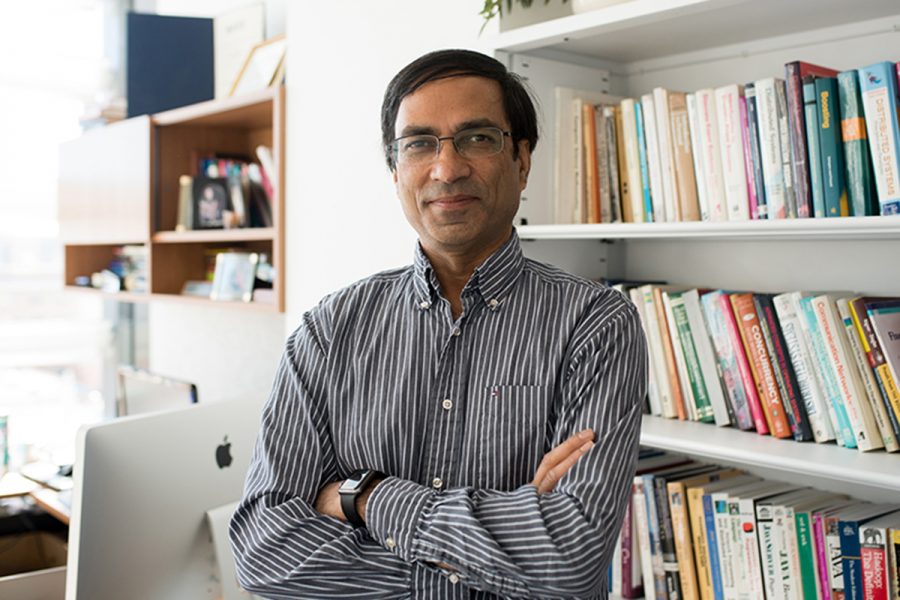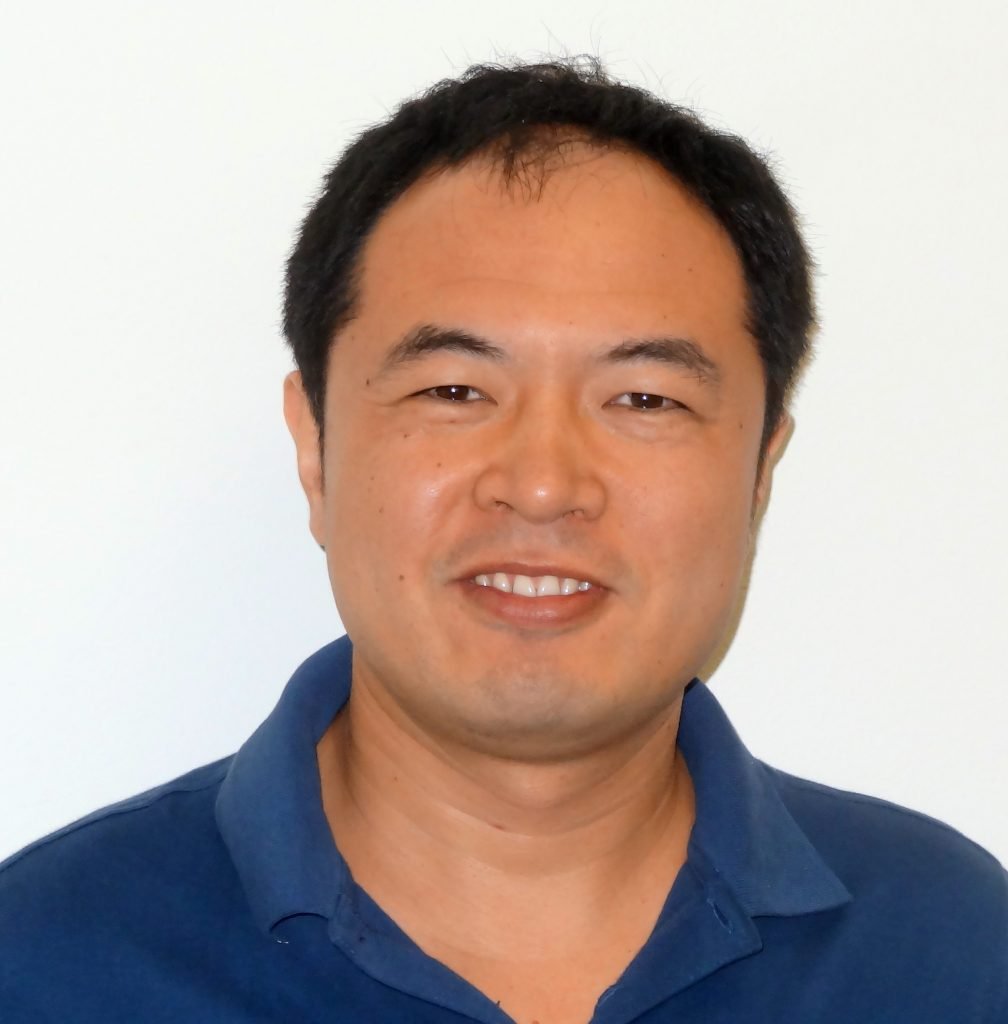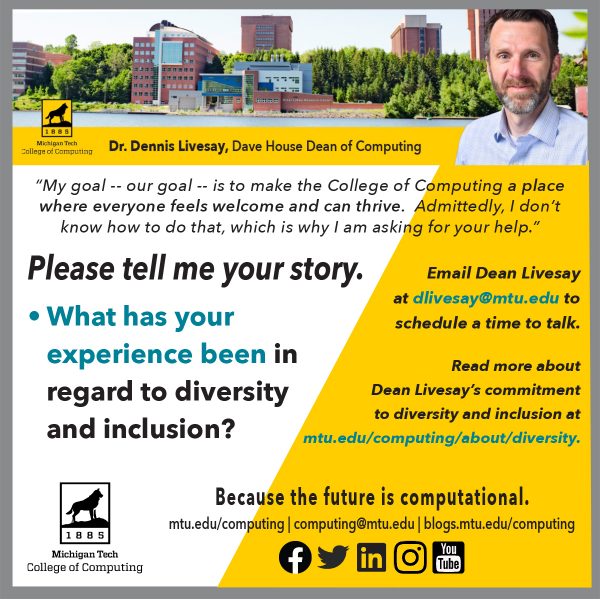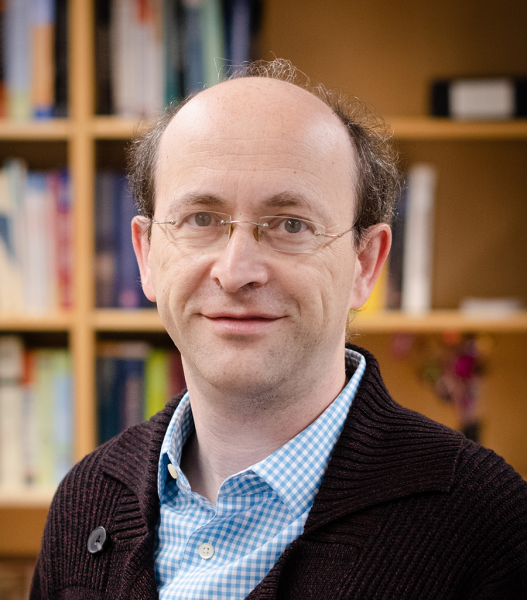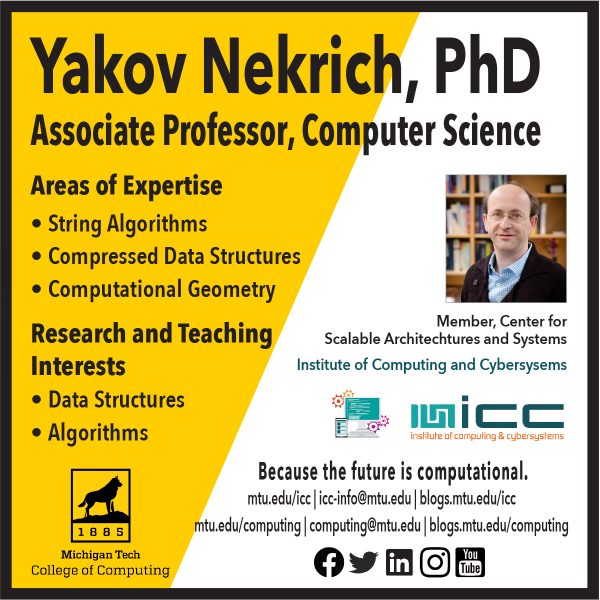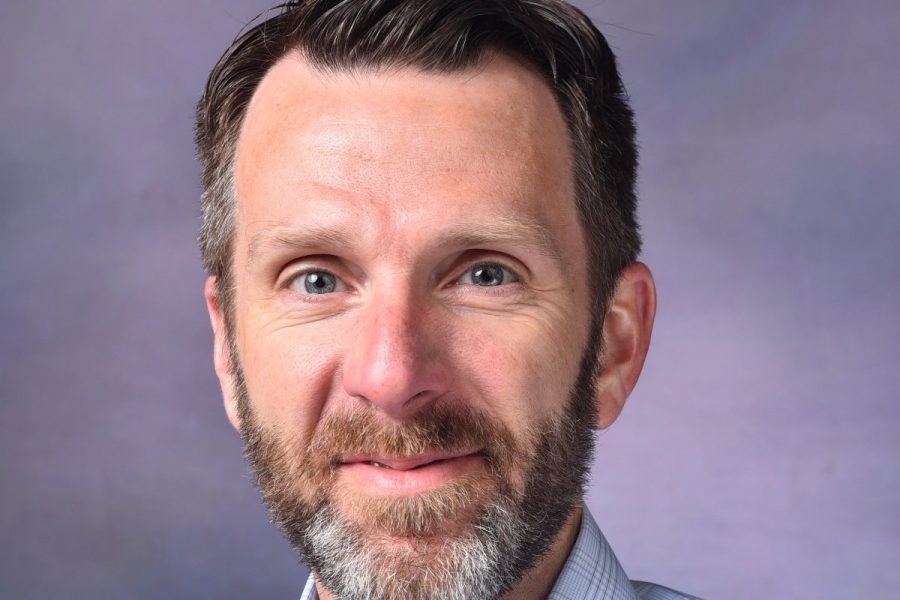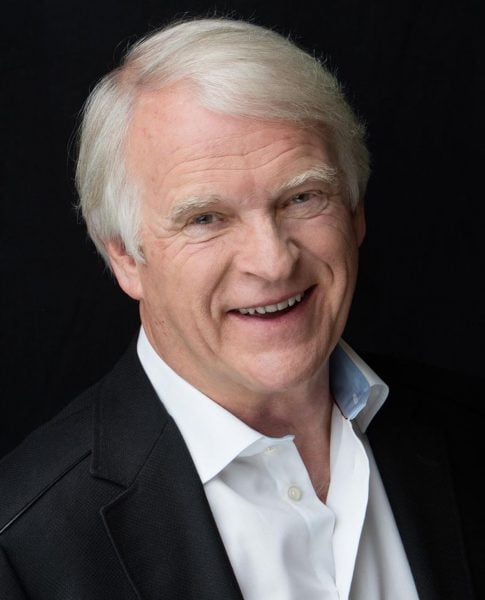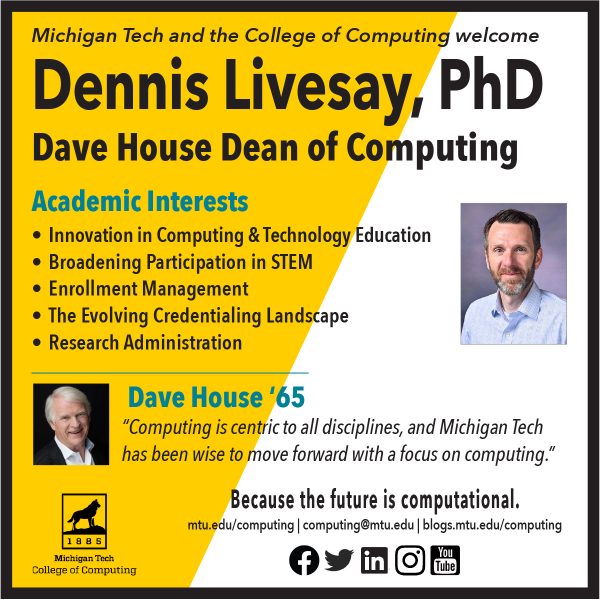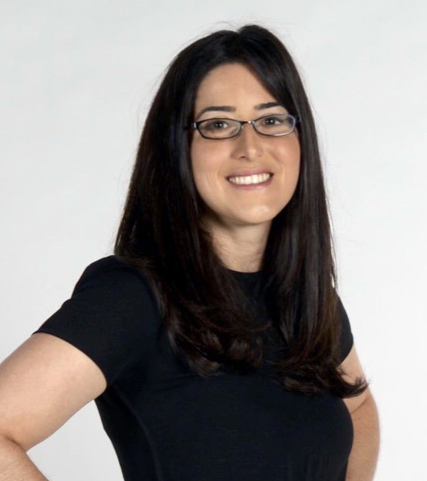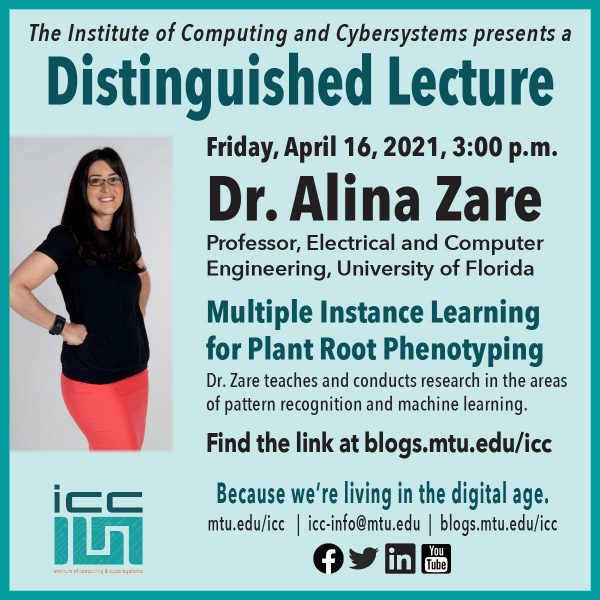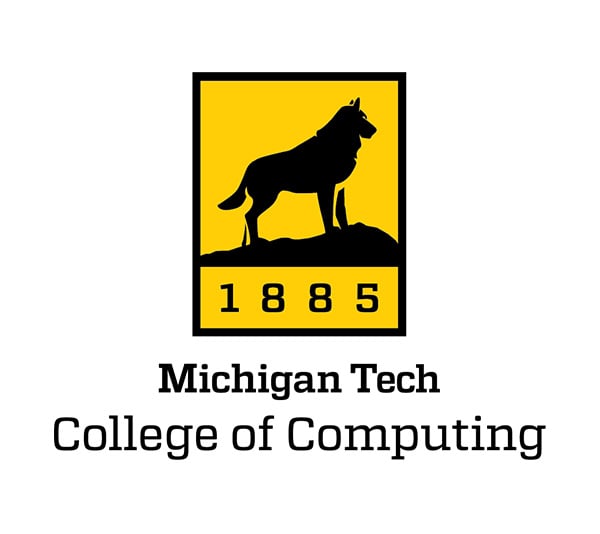
College of Computing Dean Dennis Livesay will host two 60-minute virtual Town Hall meetings for College undergraduate and graduate students on February 23 and February 25, 2021.
At the Town Hall meetings, student are invited to share with Dean Livesay their thoughts and input about the College, curriculum, degree programs, departments, and other topics of interest.
The Undergraduate Town Hall is February 23, 2021, from 4:00 to 5:00 p.m. Join that meeting here: https://michigantech.zoom.us/j/87889920742.
The Graduate Town Hall is February 25, 2021, from 4:00 to 5:00 p.m. Join here: https://michigantech.zoom.us/j/82512917783.
